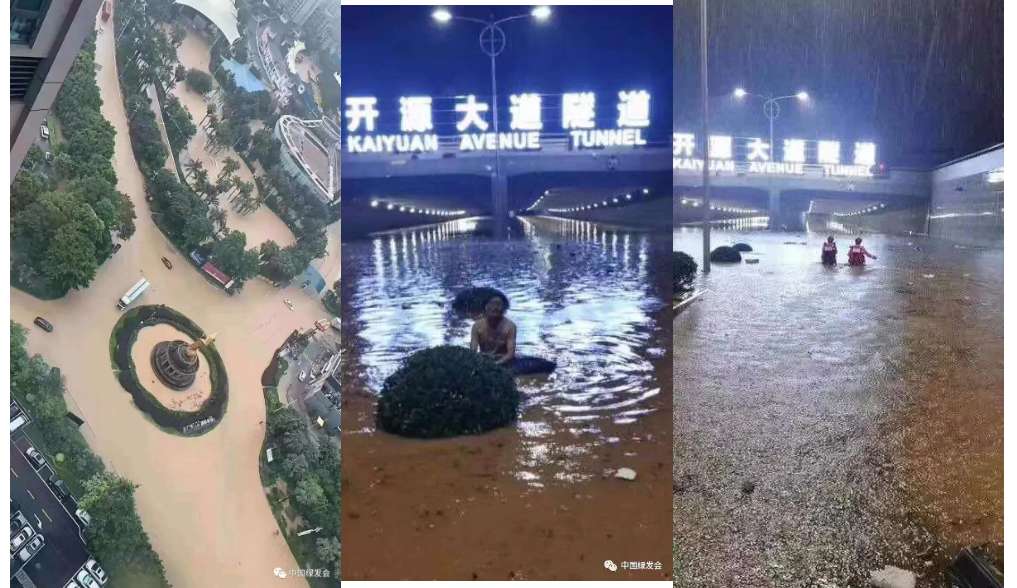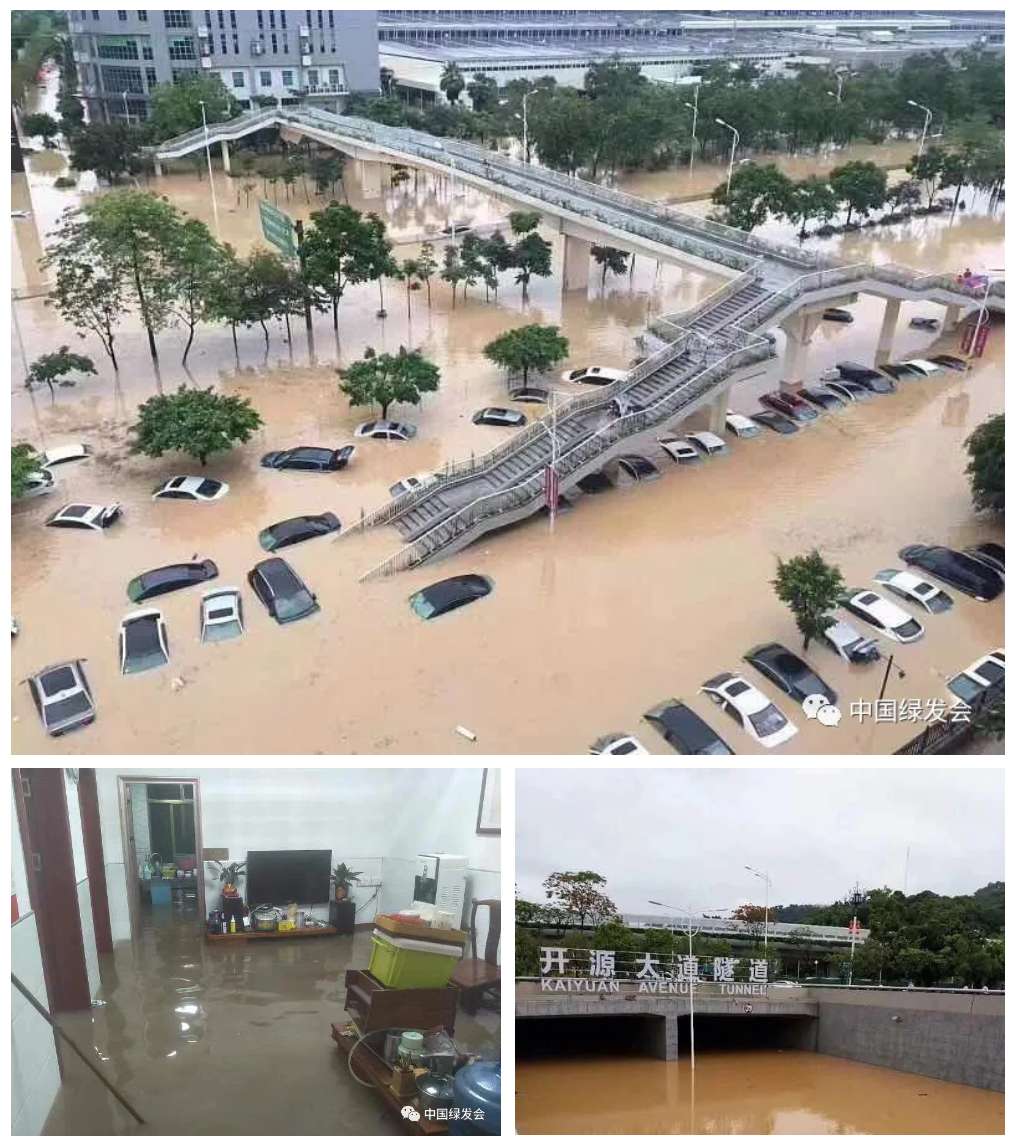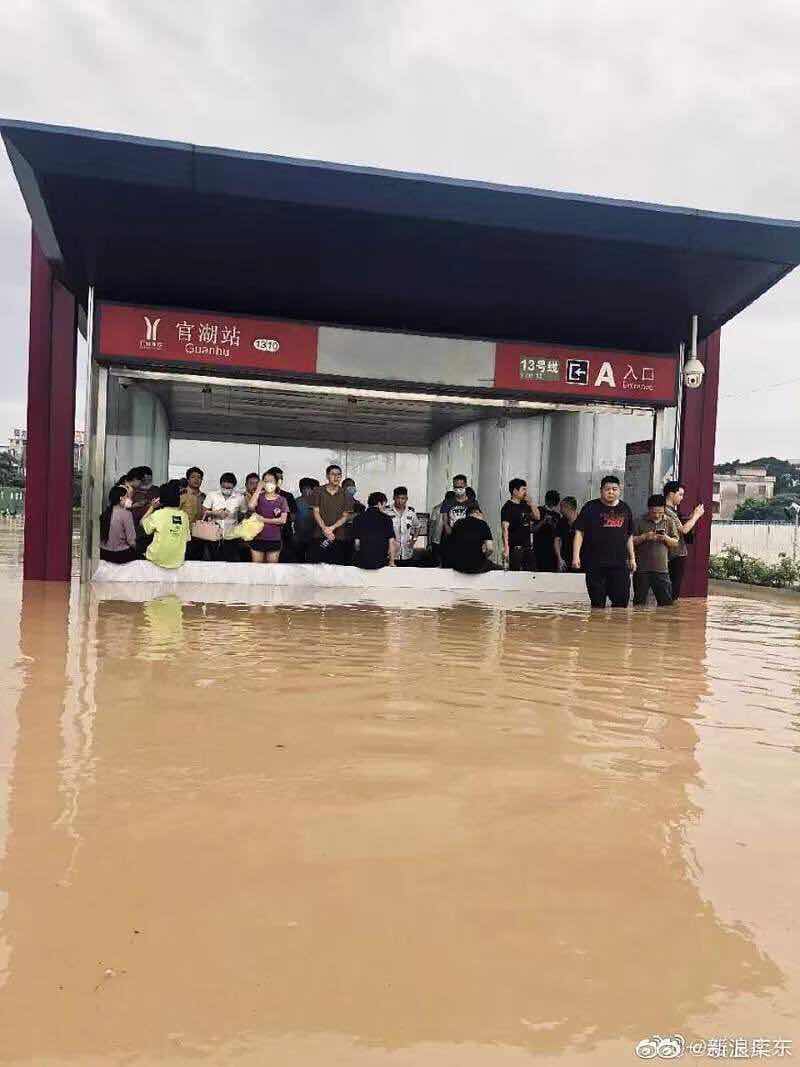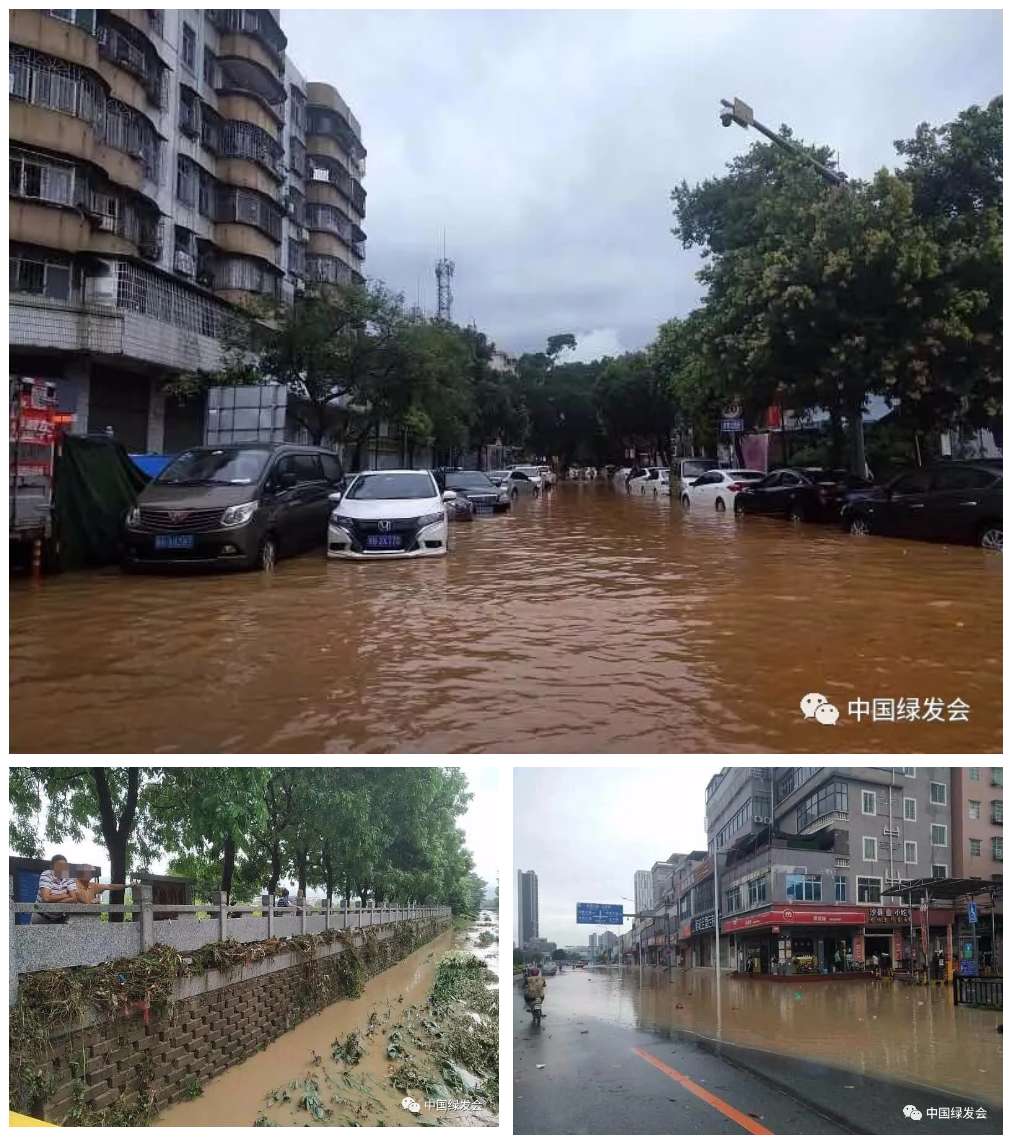From the evening of May 21 to the morning of May 22, Guangzhou City in Guangdong Province was hit by heavy rain, some of which were extremely heavy. The intensity and scope of the rainstorm exceeded the historical record, according to data released by Guangzhou municipal authorities on Tuesday. As of 6 PM on May 23, news had emerged that the torrential rain had killed many people.
An article published on May 22 on social media exposed the severe impact of the flood caused by the heavy rain. Many citizens "woke up in their dreams." Under the influence of the powerful southwest monsoon, a heavy rainstorm brought by thunderstorm clouds caused severe flooding in this bustling city, paralysis of public transportation, water accumulation of more than one meter deep, many garages flooded, vehicles flooded, and even someone caught fish in the street. Although the meteorological department issued an early warning signal and the primary and secondary schools were suspended throughout the day, the torrential rain was violent and exceeded the expectations of many Guangzhou citizens. On the afternoon of the 23rd, according to news released by the emergency management department, super-alarm floods may occur in many rivers.
In Henan Province, China, however, it was a drought. A report on May 20 showed that drought conditions have appeared in many places in Henan, and the drought may expand in the future.
In this regard, Dr. Zhou Jinfeng, the Secretary-General of China Biodiversity Conservation and Green Development Foundation (CBCGDF) believes: "Climate change has broken the original balance and extreme weather has increased, so we should pay close attention to and prepare for climate adaption." Taking Guangzhou as an example, he talked about:
First of all, the heavy rain has sounded the alarm again, and we must pay attention to future urban design and basic planning: we can no longer design according to the previous standard of "no encounter in a hundred years". Because in the future, such "hundred years" floods will probably increase in the future, continue to break expectations, and continue to become a new crisis in the cement cities. Due to the sea level rise brought by climate change and the increasingly frequent and unpredictable extreme weather, various historical records will be constantly refreshed. Therefore, in urban management and planning, we should reserve space for growth on the basis of the so-called "highest peak in a hundred years" in the past. In terms of climatic water volume, density and peaks, our coastal cities, including many inland cities, will set new records, such as rainfall, including Gansu and Inner Mongolia. In the future, there may be more than 100 years of rainfall.
Secondly, we must pay attention to the hardening of urban ground. Why is Huangpu Luogang in Guangzhou so flooded? It is largely related to the large-scale hardening of the ground. For example, in Beijing decades ago, the roads outside the Second Ring Road were rare roads with no hardening at all. Now, the roads’ ground from the Second Ring to the Sixth Ring Road is mostly hardened besides houses. Imagine:
With such a large area of water falling down, a drainage system is needed to drain it; But in the past, such a large area, can absorb the land area is less, and its rainfall is more and more large, from the past 100 mm, 200 mm to the Yonghe Street of Huangpu District with the largest cumulative rainfall data in Guangzhou City, the vast majority of places are now not permeable. Then all this rain must be concentrated, and what a torrent is it!
Therefore, we must fully reserve some land for nature in urban construction, and the construction must have a "sponge city" concept. In fact, we must fully absorb rainfall and reduce the proportion of ground hardening. For example, leaving seemingly useless wetlands can play an important role in flood storage; retaining and protecting mangroves may increase a line of defense when extreme weather comes; The parking lot in the city does not need to be completely hardened by cement, and can be made permeable, etc. In short, under the premise of "respecting nature", there can be a lot of meaningful and active adaptation.
Dr. Zhou said with regret: "We are saddened by the unfortunate victims, and we hope that we will learn a lesson in the planning and design of the city and prevent future crises."
From the overall background, the climate crisis and the biodiversity crisis are the two biggest environmental crises facing mankind. In the short term, we are probably irreversible, so in this case, in addition to protecting the existing natural ecology, we must also actively adapt, and under the guidance of the concept of "climate adaptation", carry out relevant work and plan ahead to prepare for the future to address the challenges to protect the safety of public life and property.




(Photo source: Internet)
Original Chinese article:
http://www.cbcgdf.org/NewsShow/4854/12557.html
By / Jin Zhihao Modified / Maggie
